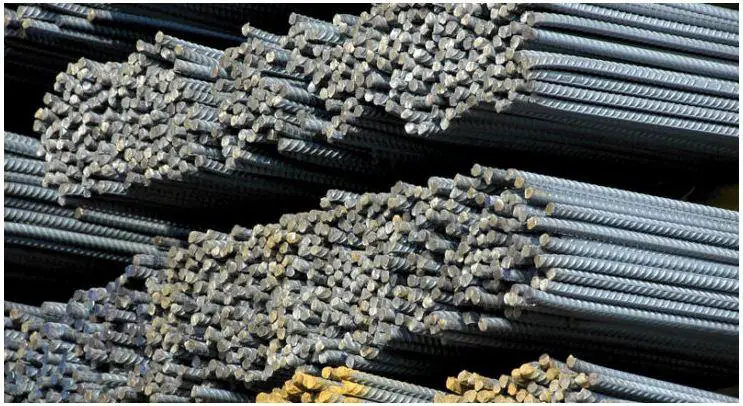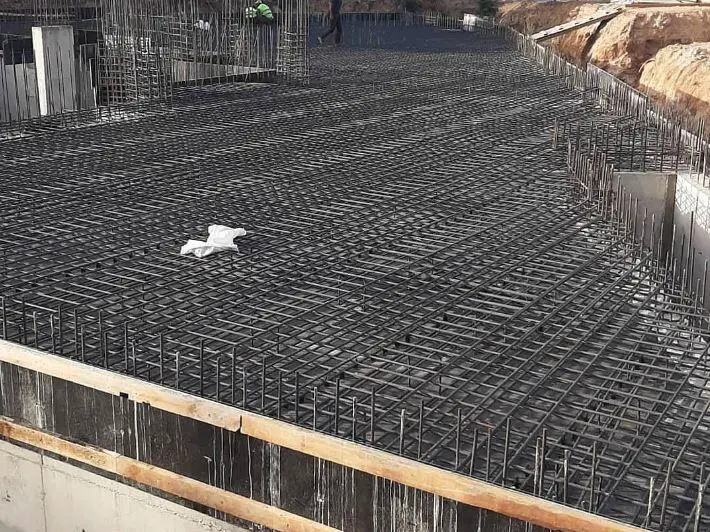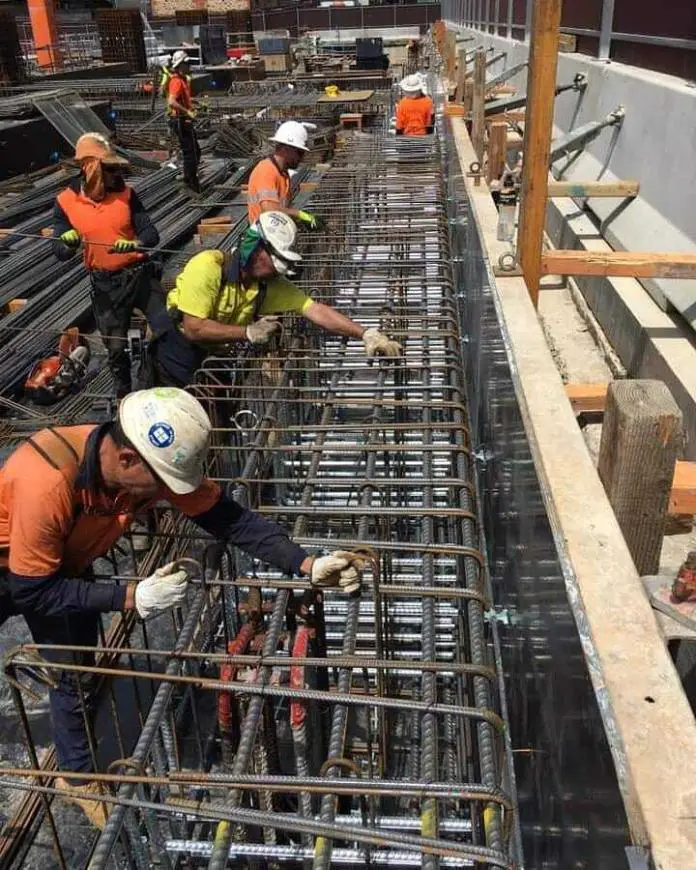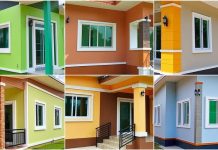Installation of reinforcements is an important item of work in the construction of reinforced concrete structures. The cost of reinforcement works therefore significantly impacts the total contract sum of any construction project. In the preparation of a bill of quantity (BOQ) or bill of engineering measurement and evaluation (BEME), concrete and reinforcement works are listed as separate items of work.
Therefore, a contractor bidding for such a job is expected to provide his rate of buying, cutting, bending, and installing the reinforcements according to the construction drawing in one sum. While concrete is priced per cubic meters (m3), reinforcement is usually priced per kilogram (kg).
The price to be quoted per kg of reinforcement is expected to cover the cost of purchase and supply of the materials to the site, cost of cutting, bending, and installation according to the design specification. It is also expected to cover the contractor’s profit and overhead. The use of bar bending schedule (BBS) can enhance the process of reinforcement handling and evaluation.
Read Also…
How to quote/price for concrete in Nigeria
Therefore, a contractor bidding for a job in reinforced concrete construction is expected to know the basic cost of reinforcement in the market, the cost of transportation, the cost of labour, and the cost of machinery that will be needed to execute the job. Initial market research may be required before the tender is computed and submitted to the client.
In Nigeria, there are different categories of reinforcements that are used for construction works, and each of them is priced differently in the market. As found all over the world, the use of mild steel (fy = 250 N/mm2) is no longer common, and it is rarely utilised in construction in Nigeria. However, some people still use R6mm (commonly called the ‘quarter rod’) and R8mm as links for columns and beams, but it is rarely specified in construction drawings these days. The categories of reinforcements in the Nigerian markets are;
- Local reinforcements (manufactured locally)
- TMT reinforcements (manufactured locally)
- Foreign reinforcements (imported into the country)
Local reinforcements are manufactured locally by the steel industries in Nigeria and are the cheapest class of reinforcements in the market. They have a reputation of not always meeting the minimum yield strength requirements, and are not usually employed in large-scale or serious projects.

TMT reinforcements are high-quality reinforcements produced from recycled steel through the process of thermomechanical treatment. They usually satisfy the yield strength requirements and are widely used for all kinds of projects in the country, including bridges. They are more expensive than local reinforcements. As at July 2022, while one tonne of reinforcement is sold at about ₦415,000.
Foreign reinforcements are usually imported from Germany, Ukraine, or Russia, and are slightly more expensive than TMT reinforcements. However, the presence of TMT reinforcements is making foreign reinforcements less attractive.
Therefore, careful attention to design details and specifications is needed during the pricing of reinforcements. We are going to show below the process of pricing for reinforcement works in Nigeria. The information that will be needed for the evaluation of the cost of reinforcement works in Nigeria are as follows;
- Cost of reinforcement in the market (based on the size and type of reinforcement)
- Cost of binding wire
- Cost of delivery to site
- Cost of labour for cutting, bending, and installation
- Cost of machinery (cutting machine and bending machine)
Calculation of the Cost of Reinforcement Works in Nigeria
For example, let us calculate the cost of installing 3650 kg of Y12 reinforcements in the floor slab of a building.

As a rule of thumb, about 12 kg of binding wire is required to tie 1 tonne of reinforcement (this also means that about 0.012 kg of binding wire is required to tie 1 kg of reinforcement). Therefore about 44 kg of binding wire is required for this project.
Cost calculation
Basic cost of reinforcement (including delivery to site) = say ₦430,000 per tonne = ₦430 per kg
Basic cost of binding wire (including delivery to site) = ₦17,000 per 20 kg = ₦ 850 per kg (= ₦10.2 per kg of reinforcement)
Basic cost of labour (cutting, bending, and installation) = ₦25,000 per tonne = ₦25 per kg
Assuming that the use of machinery is not applicable in the project or factored into the cost of labour, total basic cost = ₦430 + ₦10.2 + ₦25 = ₦465.2 per kg
Make 10% allowance for waste and laps = 1.1 x 465.2 = ₦512
Allow 20% for contractor’s profit and overhead = 1.2 x ₦465.2 = ₦ 559 per kg
Therefore the current cost of reinforcement works in Nigeria is ₦559 per kg of reinforcement.
Therefore, the cost of fixing the floor slab reinforcement = ₦559 x 3650 = ₦2,040,350:00 (Two million, forty-six thousand and three hundred and fifty Naira)
For your construction and building design works, contact;
Structville Integrated Services Limited (RC 1491828)
Whatsapp/Call: +2347053638996
E-mail: info@structville.com











The range I’ve seen is between 330-380kper ton
Nice
Please I need textbook or guild on how to built up rate
the rate for the binding wire is not clearly stated
Cost of reinforcements labour works in the construction industry ought to move with the cost of purchase to my mind. However, the cost of labour works being placed at N556/per ton is on the lower side with the current price of a ton hovering at N550,000 – N600,000.00 per ton now in the market.
This may be the markert price of reinforcement that time and moreover, this is an illustration on how to computer your estimate. You can use the current price of reinforcement and binding wire, also your own labour cost and estimate and arrive at your own price per kg following the illustration.
Thanks!